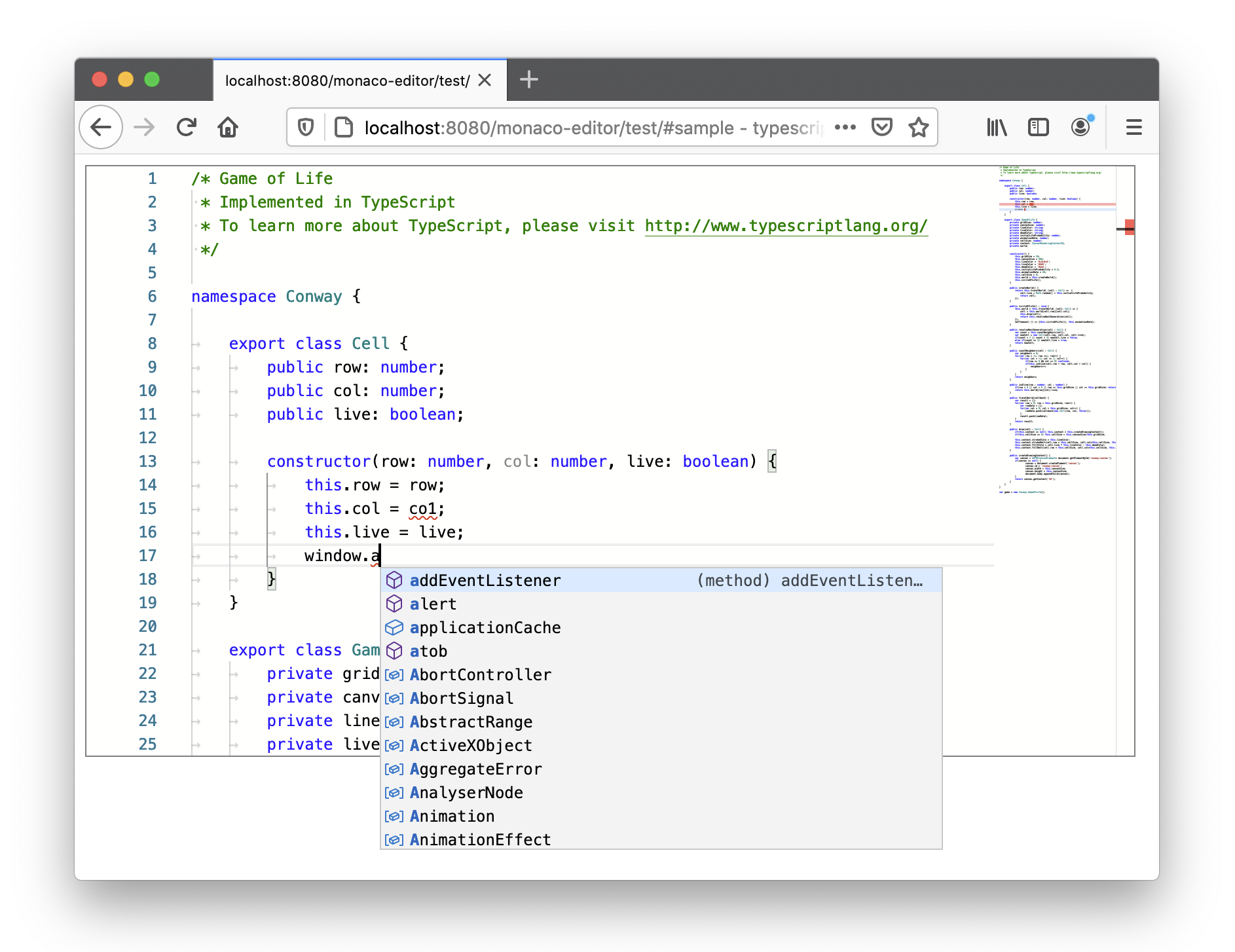
Research
Security News
Quasar RAT Disguised as an npm Package for Detecting Vulnerabilities in Ethereum Smart Contracts
Socket researchers uncover a malicious npm package posing as a tool for detecting vulnerabilities in Etherium smart contracts.
@vscode-alt/monaco-editor
Advanced tools
The Monaco Editor is the code editor which powers VS Code, with the features better described here.
Please note that this repository contains no source code for the code editor, it only contains the scripts to package everything together and ship the monaco-editor npm module.

Try the editor out on our website.
$ npm install monaco-editor
You will get:
esm: ESM version of the editor (compatible with e.g. webpack)dev: AMD bundled, not minifiedmin: AMD bundled, and minifiedmin-maps: source maps for minmonaco.d.ts: this specifies the API of the editor (this is what is actually versioned, everything else is considered private and might break with any release).It is recommended to develop against the dev version, and in production to use the min version.
monaco.d.ts.Create issues in this repository for anything related to the Monaco Editor. Always mention the version of the editor when creating issues and the browser you're having trouble in. Please search for existing issues to avoid duplicates.
❓ What is the relationship between VS Code and the Monaco Editor?
The Monaco Editor is generated straight from VS Code's sources with some shims around services the code needs to make it run in a web browser outside of its home.
❓ What is the relationship between VS Code's version and the Monaco Editor's version?
None. The Monaco Editor is a library and it reflects directly the source code.
❓ I've written an extension for VS Code, will it work on the Monaco Editor in a browser?
No.
Note: If the extension is fully based on the LSP and if the language server is authored in JavaScript, then it would be possible.
❓ Why all these web workers and why should I care?
Language services create web workers to compute heavy stuff outside of the UI thread. They cost hardly anything in terms of resource overhead and you shouldn't worry too much about them, as long as you get them to work (see above the cross-domain case).
❓ What is this loader.js? Can I use require.js?
It is an AMD loader that we use in VS Code. Yes.
❓ I see the warning "Could not create web worker". What should I do?
HTML5 does not allow pages loaded on file:// to create web workers. Please load the editor with a web server on http:// or https:// schemes. Please also see the cross-domain case above.
❓ Is the editor supported in mobile browsers or mobile web app frameworks?
No.
❓ Why doesn't the editor support TextMate grammars?
monaco-editor, vscode-oniguruma and vscode-textmate to get TM grammar support in the editor.❓ What about IE 11 support?
0.18.1.Please see CONTRIBUTING
This project has adopted the Microsoft Open Source Code of Conduct. For more information see the Code of Conduct FAQ or contact opencode@microsoft.com with any additional questions or comments.
Licensed under the MIT License.
FAQs
A browser based code editor
The npm package @vscode-alt/monaco-editor receives a total of 224 weekly downloads. As such, @vscode-alt/monaco-editor popularity was classified as not popular.
We found that @vscode-alt/monaco-editor demonstrated a healthy version release cadence and project activity because the last version was released less than a year ago. It has 1 open source maintainer collaborating on the project.
Did you know?

Socket for GitHub automatically highlights issues in each pull request and monitors the health of all your open source dependencies. Discover the contents of your packages and block harmful activity before you install or update your dependencies.

Research
Security News
Socket researchers uncover a malicious npm package posing as a tool for detecting vulnerabilities in Etherium smart contracts.

Security News
Research
A supply chain attack on Rspack's npm packages injected cryptomining malware, potentially impacting thousands of developers.

Research
Security News
Socket researchers discovered a malware campaign on npm delivering the Skuld infostealer via typosquatted packages, exposing sensitive data.